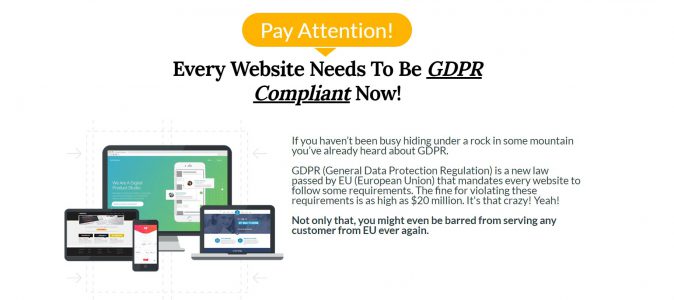The Ultimate Self-Employment Guide – Useful Tips!
Read more in this contributed article.
However, once the dust has settled and you’re getting stuck (probably realizing how much work being self-employed actually is), you’ll start thinking of things that will impact your success. One huge thing that all self-employed people need to consider is how they will track and manage their expenses. Doing this ensures that there are no nasty surprises when the taxman comes knocking, and that you pay what you owe and not a penny more.
Remember, knowing how to accurately track and manage your #expenses and #finances in general when you’re #self-employed is an absolute must.
Below, we’re going to give you some foolproof advice that will help you to track and manage your expenses perfectly. If this is something you’ve been thinking about lately or simply something you’d like to ensure that you’re prepared for, read on!
1.Thoroughly Research What You Are Able To Claim For
Right from the onset, you should know exactly what you are able to claim for – the whole reason behind this self-employment guide. Make sure you thoroughly research this. If you’re unsure, you can ask forums, other self-employed people that you know, or even accountants/financial advisors.
What you can claim for will vary depending on the kind of work you do, how much you work, where you conduct your work, and so on. You may be able to claim for things like the following if they are solely for business use:
- Mileage
- Stationary
- Courses
- Books
For other things, you may be able to claim a small percentage. It’s key that you research and track these things accurately so you know exactly how much to claim for.
2. Keep A Detailed Record Of Your Allowable Expenses
When you know what you are allowed to claim for, it’s time to make sure you’re keeping detailed records of your allowable expenses. There are many ways you can do this, but one popular and free way is by using something like Google spreadsheets.
There are other tech savvy ways you can try, but using a spreadsheet can help you to track both your income and expenses and is quick, free, and easy. You can create columns and track the titled item, cost, date and receipt. You can also make notes in the receipt section about where the receipt is stored, like in an email folder because it was an online transaction or on your desktop. This will make your life so much easier when it comes to filing your returns and getting things right.
Remember, a spreadsheet is fine if you’re just one person, but you might actually want to invest in a more substantial program if you have a team of employees or you’re planning on growing your business one day.
3.Be Mindful About Credit Cards
When you’re self-employed you especially have to be mindful of credit cards. Having a line of credit available before you need it can be useful as a small business owner. You can look into getting a credit card specifically for business use, which may come with better rates or a higher spending limit if you need it.
However, you may be better off looking at business loans if you need capital to start. Compare different loans and bank accounts before you settle on the best one for you, as it’ll depend entirely on your needs and what you think your future needs may be.
4. See If You Can Get A Better Deal
Being frugal as a self-employed business owner is crucial, so you’ll want to see if you can get a better deal on the services you may be using. Your phone and internet may be costing you a fortune, so do your research on the type of package that is right for your needs and see if you could be saving money.
It’s worth checking out, especially if you’ve been with the same provider for a long time. When it comes to vendor services you may be able to get a better deal by negotiating, too. There’s always a way to enjoy better deals, although sometimes it might just mean looking for a voucher in advance or using a cashback site.
5. Plan Your Travel Carefully
Business travel may be a valid expense, but you should plan it carefully to ensure you’re not paying more than you really need to. If you like to take the train to your destination, it may be possible for you to get a season ticket, or you may be eligible for a rail card. Even buying advance tickets are far more affordable than buying on the actual day, so plan in advance as much as you can.
6. Use Apps That Can Help You
There are even apps out there that can help you to track and manage your expenses. Do your research and see what might suit your business. Evernote is a popular option for many business owners, as it allows you to keep your receipts and things electronically. Then there are enterprise solutions for mileage tracking, such as TripLog. When you use the right apps, keeping track of everything becomes an absolute breeze.
7. Pay Yourself First
One popular way of managing your business finances is to pay yourself first. This ensures you’re keeping money in your business, while also having enough money in your bank account to take care of yourself and any dependents that you may have.
![]()
You’ll want to be sensible and realistic when it comes to how much to pay yourself at first, but as your income steadies and your customer base grows, you’ll be able to increase the amount you pay yourself.
8. Come Up With A Budgeting System
Different budgeting methods work for different people. One popular method, created by Dave Ramsey, is the idea of using envelopes and cash only to ensure you have enough for everything you could possibly need to spend money on. You plan out your expenses for each spending category at the start of the month, such as rent, groceries, entertainment, and utilities.
You then label an envelope for each category and withdraw enough cash from your account to fill them. You then take your envelopes with you when you plan on spending money on whichever category. If you need more money, then you need to be smart and take it from a different envelope, but not so much that you end up not having enough.
It ensures you don’t take more out of your bank than you really need to, and gives you an incentive to stick to a certain number rather than overspend.
9. Keep An Emergency Fund
Income fluctuations mean that the self-employed should always have an emergency fund. Saving 10% each month is a great start! If you heed nothing else in this elf-employment guide – this is one tip you need to pay attention to.
You should not be dipping into your tax fund for emergencies, but you may be tempted if you don’t have any money there to cover you when you need it. Start saving for your emergency fund now rather than later. It’s a good idea to have anywhere from 6-12 months living expenses.
10. Don’t Neglect To Plan For Retirement
Don’t make the mistake of abandoning your retirement planning when you start a business. You may feel that it’s necessary to put the goal on hold for a while, but you shouldn’t do this for too long. Planning for retirement is a must, especially when you’re self-employed.
11. Take Pictures And Organize Your Receipts
Receiving receipts via your email address is the norm these days thanks to technology and other changes in the digital world. If this happens, you should create a folder in your email so that you can store them safely. You should also keep a folder on your desktop to house photos of paper receipts.
Keeping them in a physical folder is also an option, but it’s almost impossible to lose a digital copy, especially if you find a way to back them up.
Meticulously record each business expense so you can file your receipts properly. It’s all too easy to procrastinate on jobs like this, but you’ll no doubt regret it in the long run! Always keep your tax returns and receipts for at least three to five years in case you’re audited.
12. Keep Tax In Mind When Setting Your Prices
As you set your prices, it can be easy to forget all about taxes and actually charge much less than what you are worth or should be getting. By keeping your tax in mind, you’ll be able to add around 20-30% to what you were going to charge, and make sure you add this amount to your savings.
Remember, knowing how to accurately track and manage your expenses and finances in general when you’re self-employed is an absolute must. This way, you’ll have no stress when it’s time to file your tax return, and you’ll be able to effectively manage your cash flow so that your business can thrive.
Do you have any advice for others that are looking into this? I would love your feedback as well as your personal experience. And I do hope that this self-employment guide will be an ‘ace in your pocket’!
Images courtesy of Pixabay.
You can put your thoughts on paper but learning how to create your own blog is something different. If you have the right training it is not that difficult.
When you learn how to create your own blog you get to choose the things that you write about. You can also use the blog to make extra income. Here is where I learned how to create my own blog and connect with people who helped me along the way.
Click Here and see what it is all about!











 Hello there, I am
Hello there, I am 


2 thoughts to “The Ultimate Self-Employment Guide – Useful Tips!”
There are many useful tips in this article. I use Evernote and I didn’t know you could save receipts. I will have to look into that. I also need to get a better handle on expense tracking. I don’t know until I do my taxes if I have a profit or not. Thanks for the article.
Hello Shelley,
Thanks for your visit. Yes, somethings we ‘take for granted’ until when tax time comes around, we realize our shortcomings – not a good thing or a good time to have a reminder. Happy that you found value in the article. All the best.
Michelle